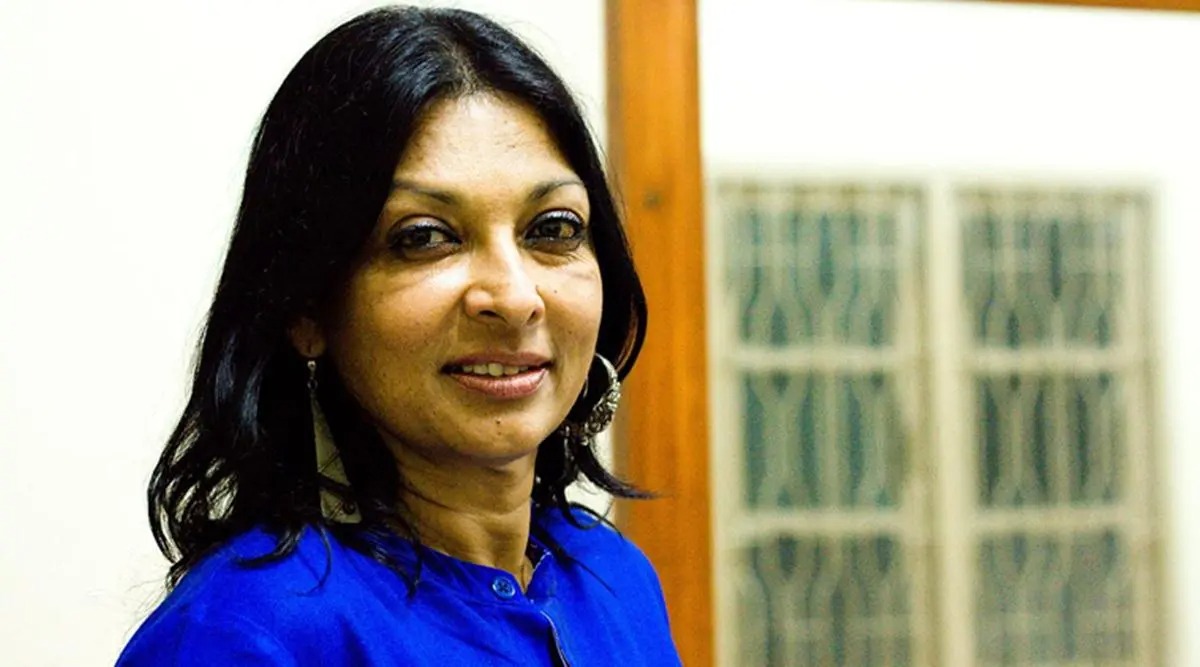 Mallika Sarabhai (File)
Mallika Sarabhai (File)“Art to me is one of the most powerful languages we have. In a world where we don’t want to listen, understand or hear another point of view, it is perhaps only art that can get through the walls that we have built up and reach a place where we are open, vulnerable and open to change,” said Mallika Sarabhai as she gave the ninth Professor Ram Bapat Memorial Lecture on Saturday over Zoom.
Bapat was an intellectual who worked in political science, sociology, literature, theatre, cinema, journalism, grassroots politics and fine arts. In the past, the lectures, instituted in his honour in 2013, have been given by Sadanand Menon, Gulammohammed Sheikh, Shiv Visvanathan, K Satchidanandan, TM Krishna and Prachi Deshpande. The theme of this year’s talk was ‘Breaking Silos’.
Sarabhai illustrated her talk with clips from powerful performances, beginning with a piece titled Dear Judge Sahib, which questions judicial decisions surrounding the arrest of Pinjra Tod activist Natasha Narwal and her father. Sarabhai drew attention to her mother, the pathbreaking dancer Mrinalini Sarabhai, who took social issues, like dowry deaths and violence against Dalits, to audiences through her performances. “I grew up assuming that all artists use art to talk about what bothered them about society,” said Sarabhai.
The talk provided a glimpse into the making of an artist-activist. When Sarabhai became a dancer, she never thought she could create pieces like her mother did. It was while working in Paris with legendary theatre director Peter Brook on the Mahabharata from 1984 to 1990 that Sarabhai underwent a personal transformation. “It made me go into myself to be able to defend what I believed in. I began to see what Peter’s and my interpretation of Draupadi was doing to women across the world, from aboriginals in Perth to very distinguished Sorbonne students. Those five years were pivotal in making me coalesce my strong feelings for justice and human rights, my still-nascent political beliefs and ideology, my ethical framework and my ability as an artiste, to reach out to people and talk about things that matter,” she said.
Subscriber Only Stories
Since then, her work has brought together “the strands of activism, political beliefs, giving voice to the voiceless, and pitching myself where I thought I could make a change and where justice was needed”. One of the performances Sarabhai spoke about was Unsuni, a sociopolitical work based on Harsh Mander’s book Unheard Voices, another piece, created during the lockdown, was on the threats to the environment.
What happens when an artiste tries to contest an election as an Independent? Sarabhai took on LK Advani and lost her deposit, but not before she had met lakhs of people during her month-long campaign and gained a deep insight into electoral malpractice. She ended the lecture with a playful work that gets children to think about gender bias and patriarchy. “Strategies have to change depending on the external situation and who is powerful…I feel one can always talk about what we think needs talking and can contribute to change and open windows in people’s lives. It is up to each of us to do this in whatever way we can,” she said.
- The Indian Express website has been rated GREEN for its credibility and trustworthiness by Newsguard, a global service that rates news sources for their journalistic standards.

